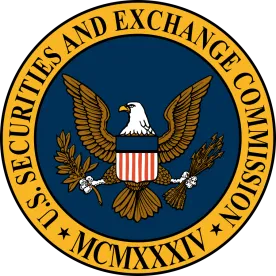The U.S. Securities and Exchange Commission hosted a roundtable on July 9 to discuss the risks to U.S. investors of investing in emerging-market companies, particularly those in China. Panelists included capital markets lawyers, consultants, portfolio managers, auditors, and stock exchange executives. The discussion focused on how to keep U.S. markets open to foreign issuers while ensuring that U.S. investors have access to accurate financial information about those issuers.
In particular, panelists cited concerns about Chinese companies that are backed or partially owned by the Chinese government, which could pose national security threats or be implicated in human rights violations. Other panelists raised concerns with the prevalence of financial fraud at certain Chinese companies and the lack of U.S. government oversight of the auditors charged with reviewing Chinese companies’ financial statements.
The SEC roundtable followed close on the heels of a July 6 report issued by the SEC’s Division of Economic and Risk Analysis addressing “U.S. Investors’ Exposure to Domestic Chinese Issuers.” The report focused on domestic Chinese companies rather than U.S.-listed companies (which was the subject of the SEC roundtable), but the concerns raised in the report were similar:
In addition to the risks regarding an inability to conduct due diligence to verify the soundness of accounting and governance standards . . . , the design and control of the Chinese financial market by Chinese authorities creates a series of potential concerns for U.S. investors related to disclosure, liquidity, volatility, fraud, and risk management.
Although the SEC has recently sharpened its focus on potential investment risks associated with Chinese companies, the issue isn’t new to the investment community. Financial reporter Francine McKenna has long warned of “the inability of investors in U.S. companies with significant operations in China to see beyond the opaque wall into the goings-on in China.” She cited an April 2020 public statement from the SEC:
Our ability to promote and enforce [transparency] standards in emerging markets is limited and is significantly dependent on the actions of local authorities—which, in turn, are constrained by national policy considerations in those countries. As a result, in many emerging markets, including China, there is substantially greater risk that disclosures will be incomplete or misleading and, in the event of investor harm, substantially less access to recourse, in comparison to U.S. domestic companies.
Using the domestic Chinese bond market as an example, the SEC’s July 6 report highlighted specific risks arising from investments in domestic Chinese securities:
- Fraud: “With frequent government intervention and limits on credible standards in corporate governance, the risk of insider dealings, market manipulation and other misconduct increase.”
- Default Risk: “China’s debt ratios are steadily increasing. . . . With the recent slowdown in economic growth, this material debt load poses an increased default risk.”
- Volatility: “The different nature of China’s investor base, along with the underlying riskier nature of Chinese issuers, is viewed as having contributed to trading activity that . . . led to episodes of high volatility in the Shanghai and Shenzhen markets . . . .”
- Corporate Incentives: “Article 19 of China’s Corporate Law stipulates that ‘In companies, Communist Party organizations shall . . . be set up to carry out activities of the Party.’ Thus, Chinese companies’ priorities may be different from those of U.S. shareholders.”
- Lack of Transparency in Bond Markets: “Bond ratings in China have been characterized as systematically skewed upward, reflecting both minimum rating requirements for issuance and implicit guarantees. . . . Many accounting or market practices with respect to bond issuers are not in line with international standards.”
- Lack of Hedging Tools: “The lack of a Chinese stock-index futures market that covers medium and small-cap stocks is particularly problematic for foreign investors seeking to protect their positions.”
- Shocks: “Given [China’s] large, low-income population with limited purchasing power, and a growth model that relies heavily on fixed investments and exporting, the economic impact of global macroeconomic shocks can have more significant consequence for the Chinese economy and its domestic financial market and capital flow than for those of other countries.”
- National Security Risk: “The increasing exposures of U.S. investors to Chinese financial markets that are intertwined with the Chinese government’s political agenda has raised national security questions for the U.S.”
On May 20, 2020, the U.S. Senate passed a bill aimed at mitigating some of these risks. The Holding Foreign Companies Accountable Act, which was passed unanimously, would prohibit foreign companies from listing on U.S. securities exchanges unless they have complied with the Public Company Accounting Oversight Board’s audit requirements for three years in a row. Currently, the PCAOB is not permitted to review audits of domestic Chinese companies, rendering their true financial condition opaque to U.S. investors. The bill has yet to be voted on in the House.




 />i
/>i

